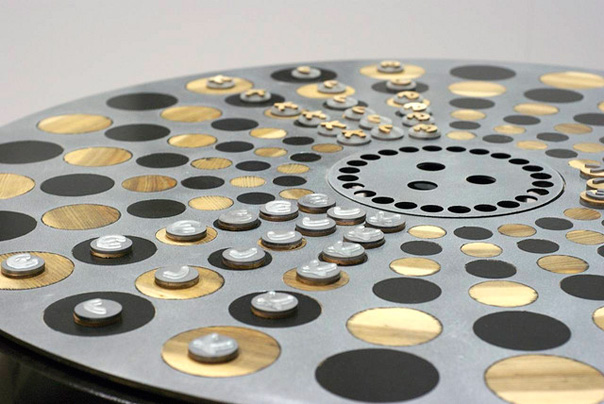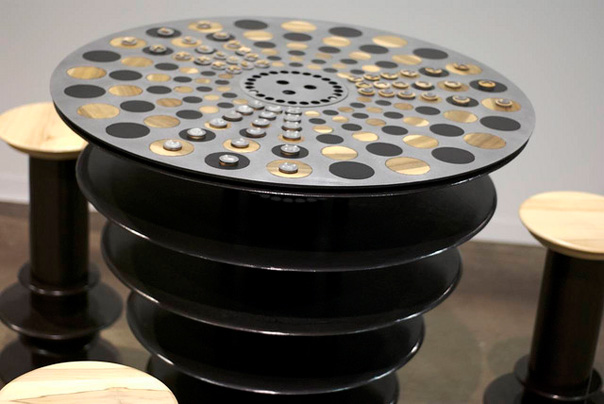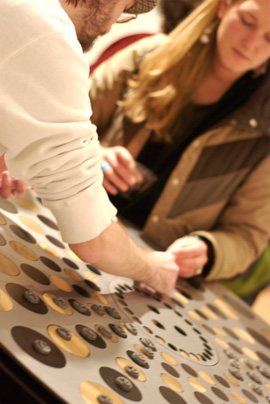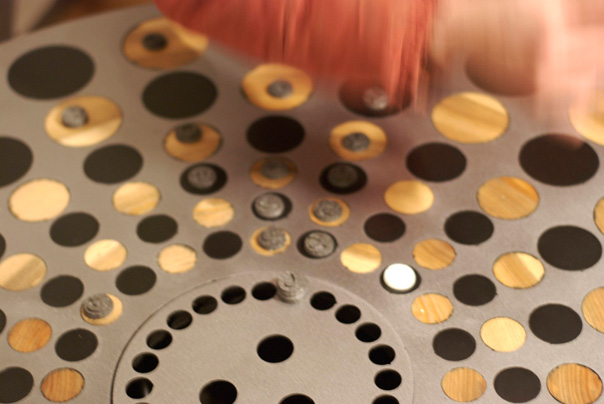Argument
Argument is a table game that allows three players either to collaborate or to compete—the players decide. The players sit at a round table that has 144 circles inlaid on the top. They take turns moving their own game pieces from circle to circle. The pieces stack, and a player who creates a stack of three pieces, removes and collects the pieces. In competitive play, the person who removes all of his or her pieces and collects the most pieces, wins. In collaborative play, everyone can win, but only if all pieces are removed from the table.
Setup and play are easy; winning is not. Each player receives six of each type of piece and lays the pieces out between three rows. The symbol on top of each piece shows its movement. Each of the three pieces moves like a familiar chess piece: a knight, a rook, and a bishop. In addition, each type will only stack on a specific type of piece, and the relationships are similar to Rock, Paper, Scissors: rock over scissors; scissors over paper; paper over rock. Players do not have to remember the relationships because a hole in the bottom of each piece matches the top of the specific type of piece on which it stacks.
The physical structure of the game was intended to foster collaborative play. Players sit at a round table as equals. The table is small enough to encourage intimate conversation, but too large to reach across easily, so players must help one another move pieces that are out of reach. Even if players choose competitive play, they must collaborate with one another in moving pieces. Watching people play the game has shown that players often choose to compete, and the competition reveals something about human behavior: when players collaborate, they are talking to one another; when they compete, they talk much less or not at all. These behaviors seem to increase as players become more familiar with the game. When playing collaboratively, the game is more like a puzzle than a board game, for players must have open communication to plan a strategy to clear the board. People enjoy playing the game, and because it requires three players, it does bring people together. Players decide how to play, and the decision changes how they interact with the game and one another.
Exhibitions
- Rhode Island School of Design's 2008 Annual Gradute Thesis Exhibition. 5/20/08-6/1/08
- Micromediations: Digital+Media Bianual Exhibition, Sol Kofler. 1/24/08-2/17/08




